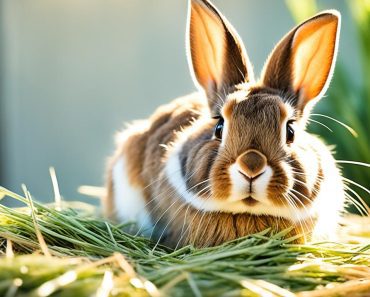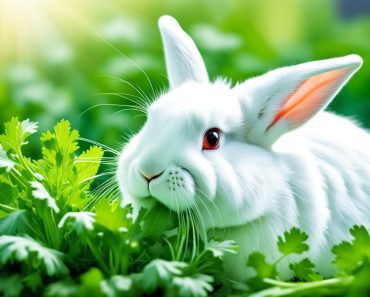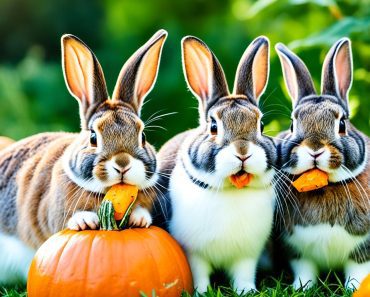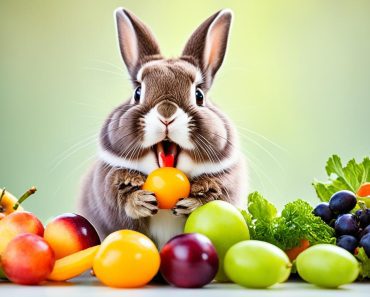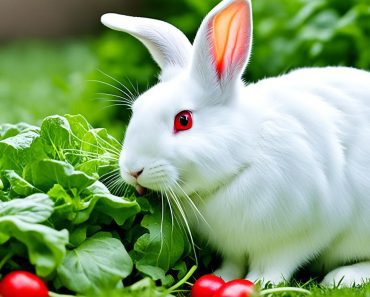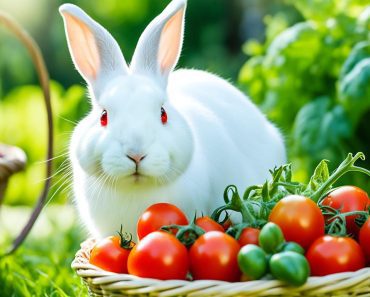As a rabbit owner, you may be wondering if it’s safe to feed your furry friend beetroot leaves. After all, rabbits have specific dietary needs, and it’s important to provide them with a balanced and nutritious diet. In this article, I’ll discuss whether rabbits can eat beetroot leaves, the nutritional value of these leaves, potential risks, and how much should be included in their diet.
When it comes to beetroot leaves, rabbits can indeed enjoy them, but in moderation. These leaves are high in oxalic acid, which can cause digestive issues if consumed in large amounts. Therefore, it’s best to offer beetroot leaves as an occasional treat, once or twice a week. To ensure a well-balanced diet, you should combine these leaves with low-oxalic acid vegetables to meet your rabbit’s nutritional requirements.
Can Rabbits Eat Beetroot Leaves? Yes, they can.
- Rabbits can eat beetroot leaves, but they should be fed in moderation due to their high oxalic acid content.
- Beetroot leaves should only be given once or twice a week as a treat and combined with low-oxalic acid vegetables.
- These leaves are high in calcium, so they should be moderated to prevent an excess intake of this mineral.
- It’s important to note that beetroot leaves have a lower fiber content compared to hay, so they should make up only about 15% of a rabbit’s diet.
- Monitor your rabbit’s response to beetroot leaves and adjust their diet accordingly to maintain their overall health.
The Nutritional Value of Beetroot Leaves for Rabbits
Beetroot leaves are a valuable addition to a rabbit’s diet, providing essential nutrients to support their overall health. These leafy greens are rich in vitamins, fiber, and minerals, making them a nutritious choice for your furry friend.
One of the standout advantages of beetroot leaves is their potassium content. Potassium is important for maintaining healthy heart and muscle function in rabbits. Additionally, beetroot leaves are a good source of calcium, which is essential for strong bones and teeth. Iron is another mineral found in these leaves, promoting the production of healthy red blood cells.
However, it’s important to note that beetroot leaves also contain oxalic acid. This compound can interfere with calcium absorption and contribute to the formation of bladder or kidney stones in rabbits if consumed in large amounts. To mitigate this risk, it’s crucial to feed beetroot leaves in moderation and alongside other low-oxalic acid vegetables.
When preparing beetroot leaves for your rabbits, ensure they are thoroughly washed to remove any dirt or pesticides. Cut the leaves into small, bite-sized pieces to prevent choking hazards. It is advisable to purchase organic and pesticide-free beetroot leaves to prioritize your rabbit’s safety and well-being.
The nutritional value of beetroot leaves makes them a healthy option for diversifying your rabbit’s diet, but remember to always consult with a veterinarian to ensure you are offering a balanced meal plan tailored to your rabbit’s specific needs.
Potential Risks of Feeding Beetroot Leaves to Rabbits
While beetroot leaves are safe for rabbits in moderation, there are some risks associated with feeding them to our furry friends. The high oxalic acid content in beetroot leaves can potentially cause digestive issues in rabbits, such as diarrhea, if consumed in large amounts.
Rabbits have sensitive digestive systems, and the low fiber content in beetroot leaves may contribute to digestive problems. It is important to ensure that your rabbit’s diet includes enough fiber to promote healthy digestion.
Furthermore, beetroot leaves are high in sugar, which can lead to weight gain and other health issues in rabbits if consumed excessively. As responsible pet owners, it is crucial to manage our rabbits’ diet and avoid overfeeding them sugary foods.
Monitor Your Rabbit’s Stool and Behavior
After feeding your rabbit beetroot leaves, it is essential to monitor their stool and behavior to ensure they tolerate them well. If you notice any changes in their stool consistency or frequency, such as loose stools or diarrhea, it may be a sign that the beetroot leaves are causing digestive discomfort. In such cases, it is recommended to reduce or eliminate the beetroot leaves from their diet and seek veterinary advice if the symptoms persist.
“Feeding beetroot leaves to rabbits should be done with caution, as every rabbit’s tolerance may differ. It is crucial to observe your rabbit’s response to beetroot leaves to ensure their health and well-being.”
Remember, maintaining a balanced diet is crucial for rabbit care and overall health. While beetroot leaves can be a nutritious addition to their diet, it is important to provide a variety of vegetables and ensure that the majority of their diet consists of high-quality hay and pellets.
Can Baby and Wild Rabbits Eat Beetroot Leaves?
Baby rabbits, also known as kits, should not be fed beetroot leaves until they are at least 2 months old. Their digestive systems are not fully developed during this early stage, and introducing vegetables too early can cause digestive upset and discomfort. It’s important to provide baby rabbits with a diet that consists primarily of mother’s milk or high-quality commercial rabbit milk replacer until they reach the appropriate age.
On the other hand, wild rabbits can eat beetroot leaves, but caution should be exercised. Wild rabbits typically rely on a natural diet that mainly consists of grass, hay, and other vegetation found in their environment. While they may come across beetroot leaves or other leafy greens, they do not have regular access to nutrient-rich foods. Therefore, sudden and excessive consumption of beetroot leaves by wild rabbits can be harmful to their digestive system.
It’s crucial to introduce new foods slowly and gradually to wild rabbits, including beetroot leaves. This helps their sensitive digestive system adapt and prevents potential digestive issues such as diarrhea. If you encounter a wild rabbit and want to offer it some nourishment, providing a small quantity of beetroot leaves can be a kind gesture. However, it’s essential to prioritize providing the rabbit with its natural diet and maintaining a respectful distance to avoid causing unnecessary stress or disruption to its natural behavior.
Overall, while beetroot leaves can be enjoyed by adult rabbits, it’s best to avoid feeding them to baby rabbits until they reach the appropriate age. Additionally, when offering beetroot leaves to wild rabbits, it’s crucial to do so in moderation and to respect their natural diet. Prioritizing the health and well-being of these delicate creatures is of utmost importance.
Can Rabbits Eat Cooked or Frozen Beetroot Leaves?
When it comes to feeding rabbits, it’s important to provide them with fresh, raw ingredients that align with their natural diet. Cooked beetroot leaves, as well as other cooked food, should never be given to rabbits. The cooking process removes essential fibers and can make the food too starchy for a rabbit’s delicate digestive system.
Rabbits prefer the taste and texture of fresh vegetables over frozen ones. Frozen beetroot leaves can become mushy and lose their natural crunch, which may not be appealing to rabbits. It’s best to provide rabbits with fresh, raw beetroot leaves to ensure they enjoy their meal and receive optimal nutrition.
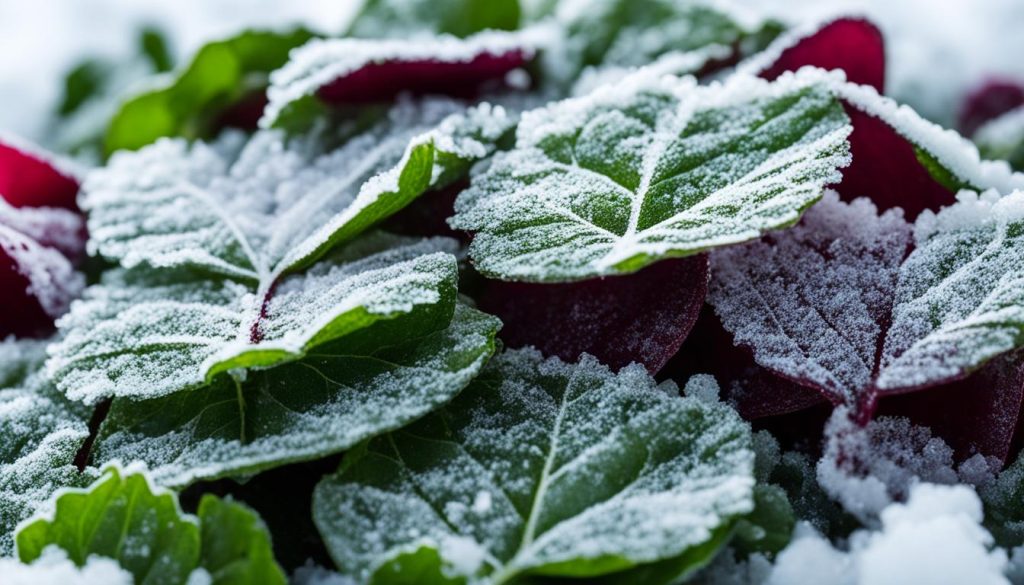
Feeding rabbits a balanced diet is crucial for their overall health and well-being. Fresh, raw beetroot leaves are a great addition to their diet as long as they are given in moderation. Remember to always consult with a veterinarian or rabbit expert to ensure you’re providing the best diet for your furry friend.
How Much Beetroot Leaves Should Rabbits Eat?
The amount of beetroot leaves that rabbits should eat depends on their size, weight, and overall diet. As a general guideline, rabbits should have one cup of leafy greens, including beetroot leaves, per four pounds of body weight per day. This can be split into two servings if desired.
It’s important not to feed rabbits too many beetroot leaves or other leafy greens, as they should make up only about 15% of their overall diet. The majority of their diet should consist of hay and high-quality pellets.
Expert Tip:
Remember, a balanced diet is crucial for your pet rabbit’s health. While beetroot leaves can be a tasty treat, they should not be the main part of their diet. Hay is an essential component as it provides the necessary fiber for their digestive system. High-quality pellets also contribute to their nutritional needs. If you are unsure about your rabbit’s diet, consult with a veterinarian who specializes in rabbit care for personalized recommendations.
Do Rabbits Eat Beetroot Leaves in the Wild?
Wild rabbits have a varied diet that mainly consists of grass, hay, and other natural vegetation. Unlike pet rabbits, they do not have regular access to beetroot leaves or other leafy greens. However, when wild rabbits come across beetroot leaves or other leafy greens, they may consume them in small quantities as part of their diet.
It’s important to note that wild rabbits prioritize their intake of grass and hay over leafy greens. These natural vegetation sources provide them with the necessary nutrients and fiber they need for their health and well-being.
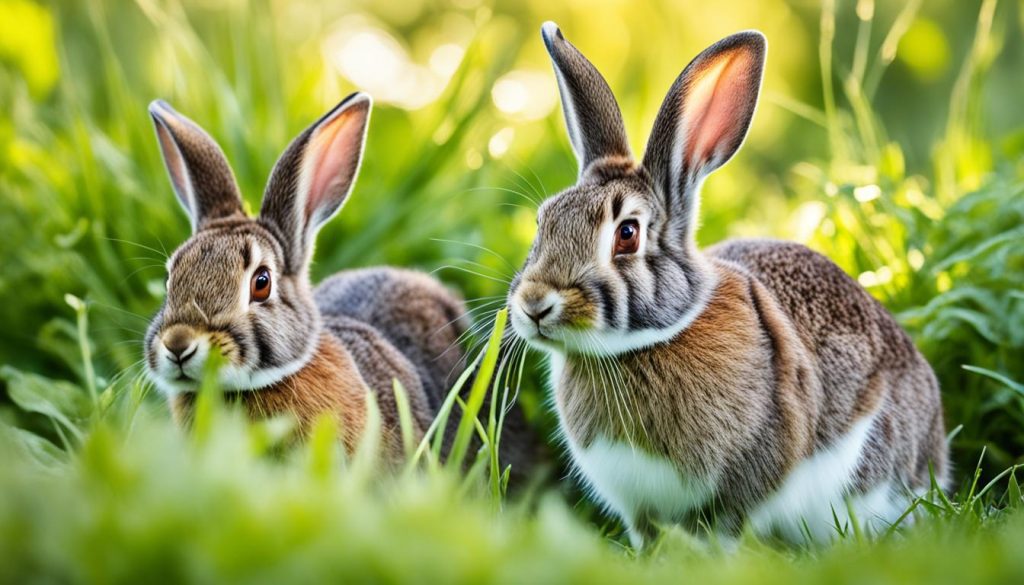
While leafy greens like beetroot leaves may be a part of a wild rabbit’s occasional diet, they are not a staple food. Wild rabbits rely primarily on grass and hay to meet their nutritional needs.
- Wild rabbits do not have regular access to beetroot leaves or other leafy greens.
- Their diet mainly consists of grass, hay, and other natural vegetation.
- Beetroot leaves or other leafy greens may be consumed in small quantities when encountered.
- However, grass and hay are the primary sources of nutrition for wild rabbits.
Conclusion
After considering the nutritional value and potential risks of feeding beetroot leaves to rabbits, it can be concluded that they can be a safe addition to a rabbit’s diet when given in moderation. Beetroot leaves are nutritious, containing essential vitamins and minerals that contribute to a rabbit’s overall health.
However, due to their high oxalic acid content, it is important to feed beetroot leaves as a treat and not as a staple food. They should be given to rabbits once or twice a week to avoid potential digestive issues. Monitoring your rabbit’s response to beetroot leaves is crucial, and any adverse effects should prompt adjustments to their diet.
While rabbits can enjoy the occasional serving of beetroot leaves, it is essential to provide them with a balanced diet. This includes a focus on high-quality hay and pellets, which serve as the main sources of fiber and nutrition. By incorporating beetroot leaves as part of a varied diet, you can ensure your rabbit’s well-being and support their overall health.

